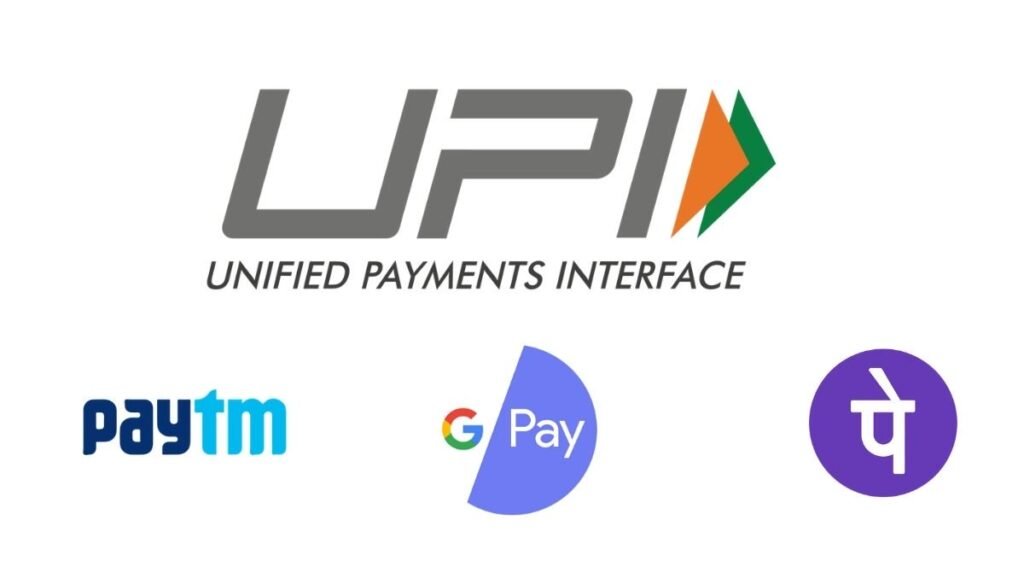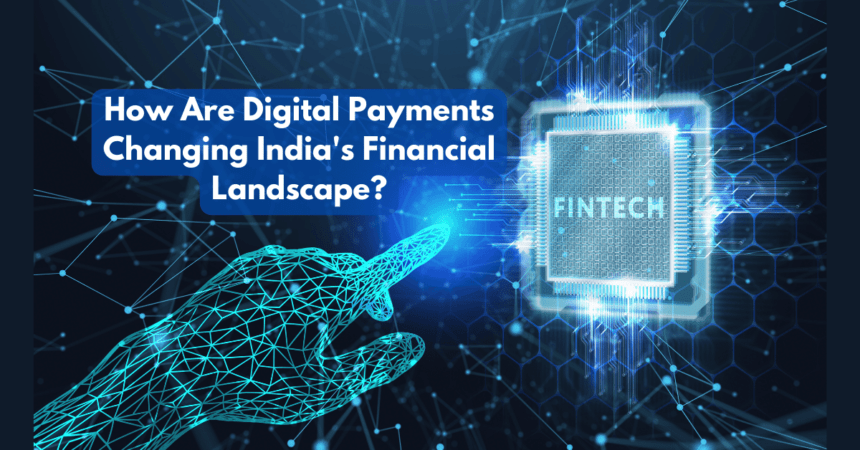Introduction
The Rise of Fintech in India
India, a land known for its rich diversity, is now experiencing a major transformation in its financial sector. Fintech, short for financial technology, is driving this change, making transactions faster, easier, and more accessible.
A New Era of Digital Payments

Digital payments are more than just a passing trend; they’re a revolution. They are changing how we handle money and making everyday transactions smoother and more convenient.
Historical Context of Financial technology in India
Traditional Banking vs. Modern Fintech
For many years, traditional banking was the norm. Now, fintech is shaking things up, offering agile and customer-friendly solutions that are hard to ignore.
Key Milestones in India’s Financial Evolution
From the founding of the Reserve Bank of India in 1935 to the digital payment surge following the 2016 demonetization, India’s journey toward a cashless economy has been marked by significant milestones.
Factors Driving Fintech Adoption
Government Initiatives and Policies
Government initiatives like Digital India and financial inclusion schemes have played a crucial role. These policies have created a supportive environment for the growth of fintech.
Technological Advancements
The widespread use of smartphones and the internet is at the core of this revolution. Advanced technologies like AI, blockchain, and data analytics are the foundation of modern fintech innovations.
Demographic Shifts and Consumer Preferences
India’s young, tech-savvy population is driving the demand for digital payments. They crave quick, seamless transactions, pushing the adoption of fintech solutions.
Popular Digital Payment Platforms

Unified Payments Interface (UPI)
UPI has transformed how we transfer money. Its real-time, inter-bank transfer capabilities have made monetary transactions as easy as a few taps on your phone.
Mobile Wallets: Paytm, PhonePe, and Others
Mobile wallets like Paytm, PhonePe, and Google Pay have become household names. They offer a range of services beyond payments, including bill payments, ticket bookings, and more.
Internet Banking and Neobanks
While internet banking remains popular, neobanks – digital-only banks – are gaining ground. They provide comprehensive financial services without physical branches, perfect for the digital age.
Impact on Traditional Banking
The Shift from Brick-and-Mortar to Digital
Traditional banks are adapting to the digital wave. They’re launching mobile apps and online services to keep up with customer expectations and remain relevant in a digital-first world.
Collaboration vs. Competition
Banks and fintech companies are exploring partnerships. These collaborations blend the stability of traditional banking with the innovation of fintech, creating better services for customers.
Fintech’s Role in Financial Inclusion
Bridging the Urban-Rural Divide
Fintech is making a significant impact in rural areas. Digital payment solutions are reaching even the remotest parts, providing financial services to those previously underserved.
Empowering the Unbanked and Underbanked
By offering accessible financial services, fintech is empowering millions who were previously unbanked or underbanked. Mobile banking apps and digital wallets are enabling them to participate in the financial system.
Security and Fraud Prevention
Enhancing Cybersecurity Measures
With the rise of digital payments, the need for robust cybersecurity has never been greater. Fintech companies are using advanced encryption, multi-factor authentication, and real-time monitoring to protect transactions and user data.
The Role of Blockchain in Secure Transactions
Blockchain technology is changing the game for security. Its decentralized and transparent ledger system reduces the risk of fraud and enhances trust in digital transactions.
Consumer Behavior and Trends
The Rise of Cashless Transactions
Consumers are increasingly favoring cashless transactions. They enjoy the convenience, speed, and security of digital payments, indicating a shift towards a cashless society.
Changing Attitudes Toward Digital Payments
People’s attitudes toward digital payments have evolved. What once seemed unfamiliar or risky is now seen as reliable and essential, driven by the ease and benefits of going digital.
Challenges and Barriers
Regulatory Hurdles
Despite the progress, regulatory challenges remain. Financial technology companies must constantly adapt to stay compliant with evolving regulations, which can be demanding.
Infrastructure Limitations
India’s diverse geography presents infrastructure challenges. Limited internet connectivity in rural areas and technological barriers need to be addressed for widespread fintech adoption.
Consumer Trust and Digital Literacy
Building consumer trust and enhancing digital literacy are crucial. Educating users on secure practices and the benefits of digital payments will help drive broader acceptance.
Future Prospects
Innovations on the Horizon
The future of Financial technology is full of promise. Innovations like biometric authentication, real-time cross-border payments, and quantum computing are set to revolutionize the industry further.
The Role of Artificial Intelligence and Machine Learning
AI and ML are crucial in personalizing financial services. From detecting fraud to improving customer service, these technologies are making fintech more efficient and user-friendly.
Case Studies
Successful Financial technology Startups in India
India’s fintech landscape is teeming with success stories. Startups like Razorpay and Zerodha have disrupted traditional financial services with innovative solutions that cater to modern needs.
Lessons from Global Fintech Giants
Indian fintech companies are learning from global leaders like PayPal and Square. By adopting best practices and leveraging global insights, they’re refining their strategies and offerings.
Economic Impact
Boosting GDP and Economic Growth
Financial technology is a significant driver of economic growth. By enhancing financial inclusion and efficiency, it contributes to GDP growth and stimulates economic activity across various sectors.
Creating Job Opportunities
The Financial technology sector is creating diverse job opportunities, from tech development to customer support, boosting the job market and providing new career paths.
Social Implications
Transforming Everyday Transactions
Digital payments are simplifying everyday transactions. From buying groceries to paying utility bills, the ease and speed of digital payments are transforming how we handle daily tasks.
Fostering a Culture of Innovation
The fintech boom is fostering a culture of innovation. It encourages creative solutions to financial challenges, promoting an entrepreneurial spirit and technological advancement.
Role of International Players
Foreign Investments in Indian Fintech
Foreign investors are keenly interested in India’s fintech sector. Their investments provide crucial capital and expertise, fueling growth and innovation.
Collaborative Ventures and Partnerships
Cross-border collaborations are enriching the fintech ecosystem. Partnerships with international firms bring new technologies and business models, enhancing the value proposition of Indian fintech.
Government Regulations and Policies
Current Regulatory Landscape
The regulatory environment is evolving to keep pace with fintech advancements. Authorities are balancing innovation with consumer protection, fostering a conducive environment for growth.
Future Policy Directions
Future policies will likely focus on enhancing security, promoting financial inclusion, and encouraging innovation. A forward-looking regulatory framework is crucial for sustained fintech growth.
Financial technology and Small Businesses
Facilitating SME Growth
Fintech is a boon for small and medium-sized enterprises (SMEs). It provides them with access to credit, streamlined payment solutions, and financial management tools, supporting their growth.
Access to Credit and Financial Services
Digital lending platforms are revolutionizing access to credit for SMEs. By leveraging data analytics, these platforms offer tailored financial products, making credit more accessible and affordable.
Consumer Protection and Privacy
Safeguarding User Data
Protecting user data is a top priority for fintech companies. Implementing stringent data protection measures ensures user trust and compliance with privacy regulations.
Legal Framework and Consumer Rights
A robust legal framework protects consumer rights in the fintech space. Clear regulations and redress mechanisms are essential for maintaining trust and ensuring fair practices.
Education and Awareness
Promoting Digital Literacy
Educating the public about digital payments is crucial. Initiatives to enhance digital literacy will empower users to make informed decisions and safely navigate the digital financial landscape.
Role of Media and Public Campaigns
Media and public campaigns play a vital role in promoting digital payments. They raise awareness, dispel myths, and encourage the adoption of fintech solutions through targeted communication.
Environmental Impact
Sustainability in Fintech Operations
Fintech companies are increasingly focusing on sustainability. By reducing paper usage and promoting eco-friendly practices, they are contributing to environmental conservation.
Reducing Paper Usage and Carbon Footprint
Digital transactions eliminate the need for paper receipts and physical documentation, significantly reducing the carbon footprint and promoting a greener economy.
Conclusion
Recap of Fintech’s Transformative Journey
Fintech has dramatically reshaped India’s financial landscape, revolutionizing payments and fostering financial inclusion and innovation. Its impact is profound and far-reaching.
The Road Ahead for Digital Payments in India
The future of digital payments in India is bright. Continued innovation, supportive policies, and increasing digital literacy will drive further growth, shaping a robust and inclusive financial ecosystem.
Cryptocurrency Craze: How Indians are Cashing in on Digital Gold













